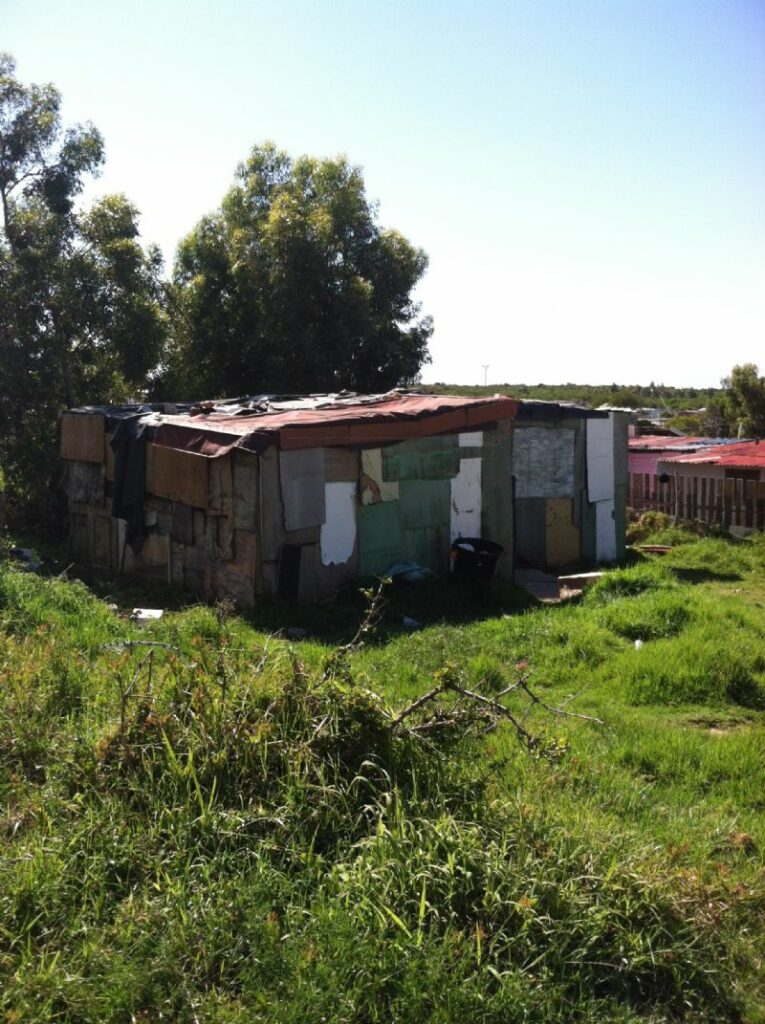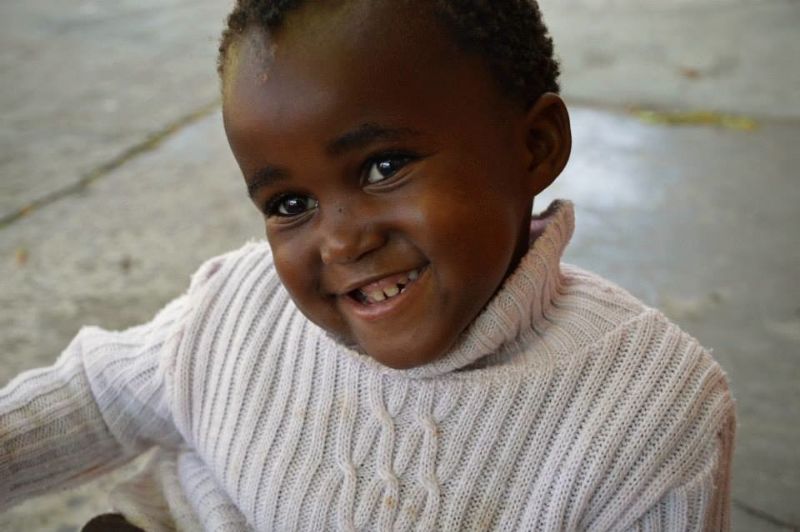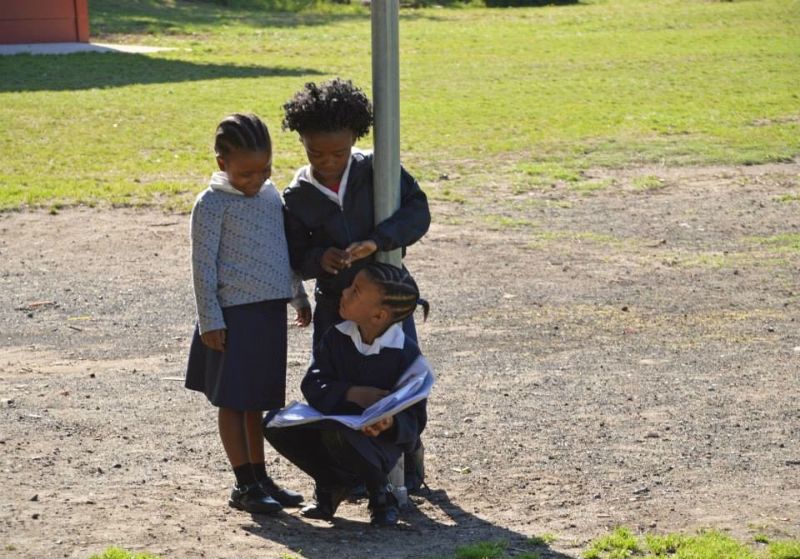The township.
A place of violence and abuse.
A cycle of uneducated, poverty stricken, unemployed citizens.
A collaboration of homes, created by a patchwork of scrap metal and cardboard.
A place to call home for my students at the Human Dignity Center.
A place to call home for more than 700,000 citizens in Port Elizabeth, South Africa.

~*~
We went to the township my last week working at the Human Dignity Center. The social worker of the school, Gugu, had invited us to go with her to do home visits.
The first home visit was to check on a woman who had stopped coming to work at HDC. Jerusalem Ministries composed a program where the parents of students or women with HIV/AIDS can come work in a community garden or clean the school as a way to pay for their children's education.
I stepped into this woman's shack and was immediately overwhelmed by a terrible smell. Her house was one room, made of rusted metal and sheets of cardboard. Broken pieces of glass served as decoration and stuffed in the cracks of the house was newspaper, to keep warm during the chilly, spring nights.

We gathered around the room, forming a crowded circle, and a swarm of flies buzzed in the center distracting me from the conversation. The woman began to explain that she hadn't been coming to the garden, because she has been spending her days at the dump down the road. She spends all morning walking there, and the rest of the day searching for anything salvageable. Food, clothing, anything that could be useful for a woman who has nothing. This dump is where people come to find the material to build their homes, fill their homes, and feed themselves.
In the room, hung on the center of the wall, was the graduation certificate and picture of her daughter, framed and given to them by the Human Dignity Center.
~*~
Walking down the street of the township I found myself suspicious of every man that came into my view. Immediately taking more caution and having a heightened sense of awareness whenever a man walked past us.
We passed a home with two men working on a bicycle and I aired on the same sense of caution.
As we passed them Gugu waved hello, smiled, and told us that these two men had saved a woman while she was being attacked the other day.

~*~
Down that same road, in the middle of the street, I saw Boo Boo. She's the daughter of one of the women who cleans the school, and she stole my heart from the very first day I held her and her toes and little fingers tightly clung to me.

Gugu showed us the house that Boo Boo, her older sister and mother lived in. The tiny shack, not even the size of a small car, was caving in and unsuitable to live in. Boo Boo's mother is pregnant, and all three of the children's fathers had left her with nothing.
A little further down a different road, Gugu showed us the house where Boo Boo and her family had moved in with a friend until they can afford to fix their shack.
We visited many different homes, all telling different stories of poverty and violence.
After seeing the township I understand a little more about where my students come from – where their violent and possessive natures stem from.
~*~
One day, as class was ending, a fight broke out and one boy started to cry. After everyone left, Nicole and I stood with a few of the boys as things started to settle down. The boy who made his friend cry, began to apologize over and over and rub his friends back. There were three little boys in the classroom and all of them broke down, took off their tough guy masks, and became nine year olds again.
We started talking about life. One shared that his older brother had just died and another echoed the same sentence about his younger brother. We talked about their families and their mother's. And then, we talked about x-men and soccer and other things boys like to do.
And I saw the hope that the Human Dignity center was built around.

I saw hope in Mvusulelo's concerned eyes as he rubbed his friends back.
I saw hope in the graduation certificate, proudly displayed in the middle of a dark and dusty shack.
I saw hope in the prayers of the staff who worked at the Human Dignity Center.
And I don't have to be scared about these little boys becoming the men I was frightened of in the township, because there's always hope that they will be on the other side of the situation.
Hope that they'll break the cycle of violence and become the two men fixing the bicycle.
And hope that they'll break the cycle of uneducation and poverty and graduate the third grade.








